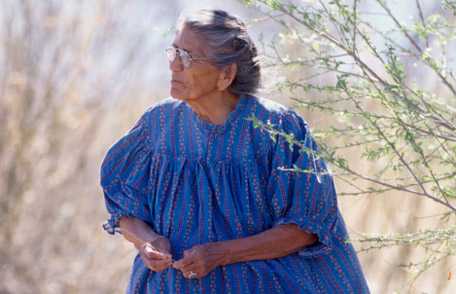American Indians, Alaska Natives, and the Flu
 Vaccination against the flu is especially important for American Indians and Alaska Natives, who have been found to be at high risk for developing complications from the flu.
Vaccination against the flu is especially important for American Indians and Alaska Natives, who have been found to be at high risk for developing complications from the flu.
Protect Indian Country by Getting Your Flu Vaccine
A flu vaccine not only protects you but also your community.
Vaccination against influenza (flu) is especially important for American Indians and Alaska Natives, who are at higher risk for complications from the flu. Compared to the general U.S. population, American Indians and Alaska Natives are more likely to be hospitalized from the flu than the general U.S. population. Experts aren’t sure exactly why, but reasons that these populations are at high risk of flu complications could include social and economic factors that often result in reduced access to health care and crowded living conditions.

A flu vaccine can prevent you from spreading the virus to your loved ones, and can help protect your community from influenza.
Additionally, within the community there are certain people that have a greater chance of becoming severely ill from influenza infection and complications, either because of their age or certain health conditions. This includes:
- Pregnant women
- Babies and young children
- Elders
In fact, pneumonia and flu are two leading causes of death among Native elders. The flu can also worsen certain health conditions, including:
- Diabetes
- Asthma
- Heart and lung disease
American Indians and Alaska Natives have high rates of these chronic health conditions, and are therefore at risk of developing severe complications from flu.
Studies have shown that people who get vaccinated will have fewer flu illnesses and doctors’ visits and miss less work due to flu. Vaccination also reduces the risk of flu-related hospitalizations. A flu vaccine can prevent you from spreading the virus to your loved ones, and can help protect your community from influenza. Please protect yourself and those you care about by getting vaccinated against the flu this season.
The Flu Vaccine is Safe
People have been receiving flu vaccines for more than 50 years, and hundreds of millions of people have safely received them. Each year, CDC works closely with the U.S. Food and Drug Administration (FDA) and other partners to ensure the highest safety standards for flu vaccines.
The flu vaccine—shot or nasal spray—does not cause flu illness; however, it can cause mild side effects that may be mistaken for flu. For example, people vaccinated with the flu shot may feel achy and may have a sore arm where the shot was given. People vaccinated with the nasal spray flu vaccine may have a stuffy nose and sore throat. These side effects are NOT the flu. If experienced at all, these effects are usually mild and last only 1-2 days.
Since influenza viruses are always changing and immunity wanes over time, it is important to get a flu vaccine every season.
Where to Get Vaccinated
Vaccines are available at your local health care facility (even if you don’t have a regular doctor or nurse), mobile and community-based immunization clinics, and at pharmacies and grocery stores. Check with your local health care facility for more information. Keep your community and Indian Country healthy by getting vaccinated against the flu.
- Page last reviewed: November 13, 2014
- Page last updated: November 23, 2015
- Content source:
- National Center for Immunizations and Respiratory Diseases
- Page maintained by: Office of the Associate Director for Communication, Digital Media Branch, Division of Public Affairs




 ShareCompartir
ShareCompartir